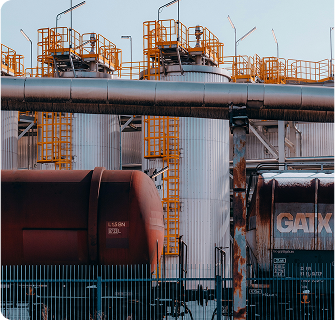

The B100 is attracting more and more interest in the field of renewable energies. TO
At a time when the decarbonization of transport has become imperative, this biofuel is
presented as an interesting alternative to traditional diesel. The purpose of this article is
to inform about the B100, its characteristics, its environmental advantages, as well as its
uses and compatibilities with current vehicles. In addition, we will discuss the aspects
regulations and available subsidies to facilitate its adoption.
B100, also known as B100 biodiesel, is a 100% plant-based fuel made from vegetable oils or processed animal fats. The acronym “B100" means that it is pure biodiesel without an admixture of fossil diesel.
This fuel meets the EN 14214 standard, guaranteeing its quality and performance.
Fatty acid methyl esters (FAME) are the main component of B100. They
result from the chemical reaction between natural oils and methanol, a process
known as transesterification. The end product is clean biodiesel that can
be used directly in modern compatible diesel engines. If you want
to learn more about the manufacturing process and the use of biodiesel, consult This guide
detailed on biodiesel.
The production of the B100 starts with the collection of raw materials such as oils.
used vegetable oil, rapeseed oil, soybean oil or sunflower oil. These oils then undergo
several purification steps to remove impurities before being mixed with
methanol and a catalyst. This chemical reaction produces biodiesel and glycerin, a
by-product usable in various industries.
Once produced, B100 must be refined to meet the strict quality standards of
standard EN 14214. This includes tests for viscosity, water content, acidity index, and flash point. Only batches that meet these criteria are placed on the market, thus ensuring optimal performance in diesel engines.
One of the main advantages of the B100 is its low environmental impact.
Unlike conventional diesel, which is derived from fossil fuels, the B100 is
completely biodegradable and renewable. Its use contributes significantly to
reduction of greenhouse gas emissions, in particular carbon dioxide.
In addition, B100 contains almost no sulfur, which considerably reduces
emissions of fine particles and nitrogen oxides compared to traditional diesel. For the
road carriers, this translates into improved air quality and a
reduction of health problems associated with air pollution. For those who
are interested in even more innovative alternatives, CNG also represents a
promising option.
The B100 is compatible with many types of diesel engines, although
specific adaptations may be necessary for certain captive fleets. Les
modern engines, designed to run on a variety of biofuels, can
generally use the B100 without major modifications. However, it is recommended to
consult the vehicle manufacturer or a specialist before switching entirely to the B100.
The B100 is particularly popular in the agricultural and transport sectors
roadway. In the agricultural context, it offers a sustainable solution for powering machines.
while reducing the carbon footprint of farms. For carriers
For drivers, the use of the B100 not only makes it possible to respect the new
environmental regulations but also to reduce operational costs in the long run
term.
In Europe, the B100 benefits from several regulatory supports aimed at encouraging its
adoption. For example, vehicles using B100 can obtain a Crit'Air sticker
1 in France, offering certain advantages such as access to low-emission zones. En
Besides, subsidies and tax incentives are available to help businesses
make the transition to this biofuel.
It is crucial to check local and national regulations concerning the use of the B100,
because they may vary according to the energy and climate policies of each
country. Encouraging sustainable practices is one of the long-term goals of these
regulations, and using fuels like B100 is an effective way to achieve this.




Adopting the B100 is taking a step forward in the energy transition. With TANKYOU, take advantage of simplified procurement, support for the compatibility of your fleets and assistance with implementation. Switch to the B100 with TANKYOU and turn your trips into ecological and economic assets.
As mentioned before, B100 is a biodiesel that is 100% vegetable, renewable and
biodegradable. Among its advantages, we can mention:
While the B100 has a lot of advantages, there are also a few
potential disadvantages to consider:
Yes, several financial aids are available to support the adoption of the B100. Among
these:
Consulting local and national programs can provide a good indication of options.
available for individuals and businesses.
To integrate the B100 into your daily operations, here are some practical tips:
Adopting the B100 is an ecological approach that combines energy performance and respect
of the environment. Opting for this biofuel will allow you to reduce your footprint
carbon while benefiting from financial aid and favorable regulations. Do not hesitate
not to explore this option to actively contribute to the fight against change
climatic.